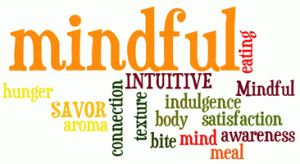Dr. Dawn-Elise Snipes PhD, LPC-MHSP, LMHC
Executive Director: AllCEUs.com
Podcast Host: Counselor Toolbox and Happiness Isn’t Brain Surgery
Become a member at DocSnipes.com to be able to chat with Doc Snipes via text or video chat.
10 Ways to Use Mindfulness to Improve Self Care
Dr. Dawn-Elise Snipes PhD, LPC-MHSP, LMHC
Podcast Host: Happiness Isn’t Brain Surgery
What is mindfulness? Mindfulness is the process or act of being aware of what you are feeling emotionally and physically, what you are thinking, what you are needing and what is going on around you at any point in time
How do you do mindfulness?
FLOAT:
Focus– Clear your mind of noise and focus on the present moment.
Let go of judgement
Observe your thoughts
Awareness of your environment
Thankful for the experience
TIPS to Use Mindfulness
1. Emotion Acceptance
- Emotions are physiological reactions that tell us to do something—repeat, avoid, grieve, accept
- Identify your beliefs about emotions.
- Identify ways you dodge/stuff/avoid emotions and their consequences. Then find alternate, healthier ways.
- When you do your mindfulness activity, identify what emotions you are feeling, why and what you need to do to improve the next moment.
2. Thought Awareness
- Our thoughts often connect with our emotions. Becoming aware of your thoughts gives you the opportunity to dispute and change them.
- Identify the thoughts you are having with each emotion. If you notice you are angry, what thoughts are you having that are making you angry?
- Review your thoughts for extreme words and replace words like all or nothing with some and always or never with sometimes.
- Review your thoughts for critical statements such as “You aren't good enough.” Ask yourself– “Says who?” It is important to figure out what you believe and not take other people's criticisms personally. Then ask yourself “Would I say this to anyone else?” If you wouldn't say it to another person, then don't say it to yourself.
- Find balance –There will always be good and bad in life. Find ways that both can be true.
3.Be mindful of your intentions
- Avoid creating a negative self-fulfilling prophesy. If you tell yourself you are going to have a miserable time or it is going to be a failure, you are more likely to make it just that. If you go in with a “we will see what happens” attitude, you are more open to positive possibilities.
- Remember who and what is important in your life… Ask yourself, if this action is getting you closer to or further away (taking a job, a relationship, anger…)
4. Develop an attitude of gratitude.
- 15 things may have gone wrong, but what went right?
- One thing may be going poorly, but what other things do you have in your life to live for and cherish?
5. Practice intentionality
- Eat mindfully. Why are you eating? What tastes are you craving? As you eat notice the taste and texture of the food. Try to identify the different spices or at least if it is sweet, salty, sour, spicy etc.
- Drive mindfully. When you drive, notice the cars around you, the birds on the power lines, the buildings you drive by, the landscaping, etc. Notice if you start to get irritated and let it go. If you get stuck in traffic, look around, notice what other people are doing. Listen to the radio and think about what that song reminds you of…. The key is to stay focused in the present.
As you increase the number of times and places you are mindful, you will increase your awareness of yourself and your needs so you can more effectively get them met. Being mindful means focusing on the moment. What is going on around you? What do you see, hear, feel, taste, smell? How do you feel emotionally and physically? What do you need to improve the next moment?
6. Practice Radical Acceptance… It is what it is. Do not fight it. You are how you are in the moment, how can you improve the next moment?
7. Find Meaning: Failure means you succeeded in learning how NOT to do it and you got outside your comfort zone. Loss means it wont be present in the future, but you still have the memories and all the ways it changed you.
- What was the meaning in this incident?
- What was I supposed to/what can I learn from it?
- How can I take the survivor's stance? (When people are victimized, they can focus on how vulnerable they were and still are, or how they survived and came through the ordeal a stronger person.)
8. Use Imagery to help you relax.
- Imagine your happy place using all of your senses. What does it smell like? What do you feel on your skin? What sounds do you hear?
9. Practice mindful listening, that is, listen with the intent to hear not respond.
- Set aside time each day to talk with your friend, kids or spouse and really focus on listening to what they are saying without trying to formulate a response. When they finish talking, paraphrase what you heard to make sure you are on the same page, and then, and only then, start to formulate a response. It is hard at first, but gets easier.
10. Practice I statements. This will help you find your part and power in situations. Instead of saying “You didn't…” or “You made me…” “Say I felt _____ when you ___.” or Instead of saying “You need to take the trash out,” say “I need you to take the trash out.” That is actually a more accurate statement. The other person may not care about the trash, but you do, so getting it taken out is YOUR need.
Becoming aware of your thoughts, feelings, needs and environment can help you stop running from things or making them worse and improve your health and happiness.

